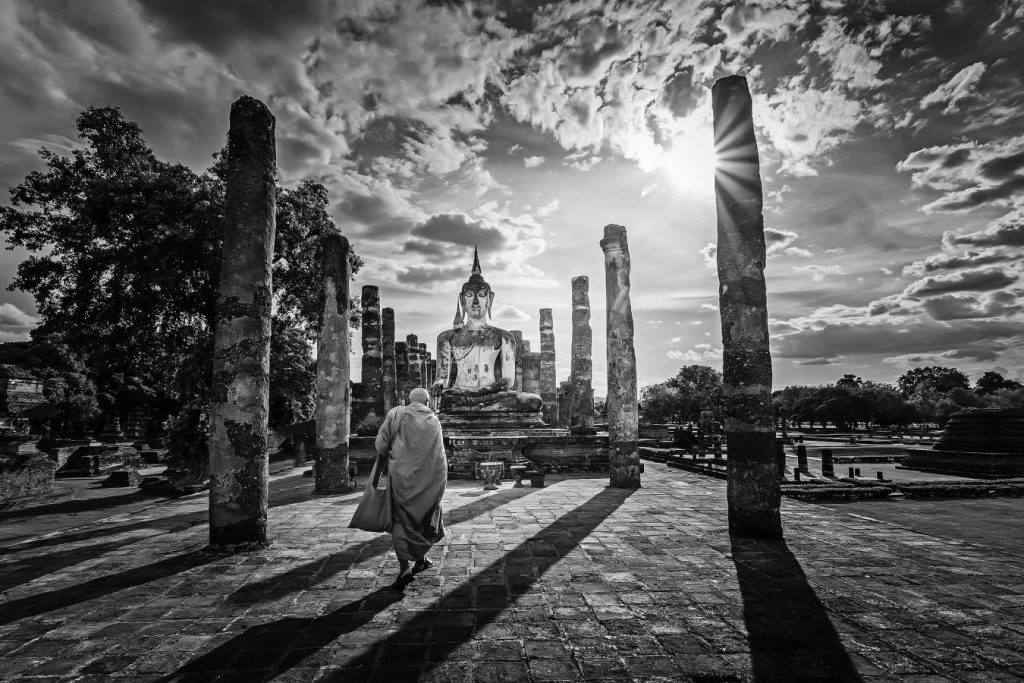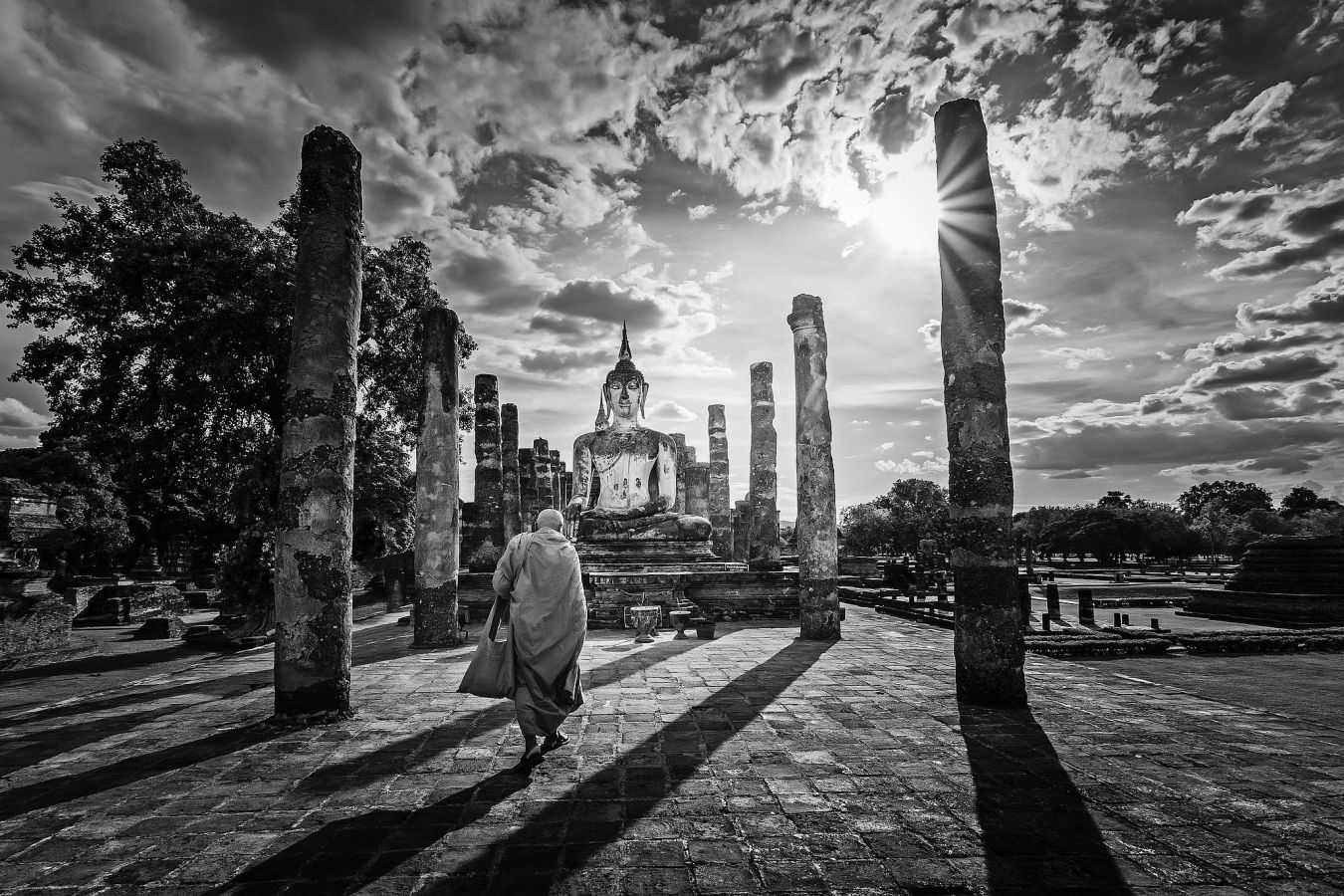
One day recently, a Buddhist monk stopped me on the street in Manhattan, offering me peace for the rest of my life. But I was late so I shook my head no and hurried on. I had no time for peace. The monk persisted. He followed me, repeating “Lifetime peace. Lifetime peace.” He smiled broadly and I smiled back, still walking and shaking my head no. I was rushing to the New York Insight Meditation Center, and the irony of running away from a Buddhist monk stopped me in my tracks.
He held up a picture of a gleaming temple or monastery on a Himalayan mountaintop, indicating that my donation would help in the completion of this Shangri-La. He held up a black notebook, indicating that I should write my name in it after I made the suggested donation of $20 or $30. Still smiling, I shook my head no, this time with a different inflection: no scams, thank you. It was a nod that was meant to convey that I was a seasoned New Yorker and meditator, and I knew that monks didn’t hustle like this.
He looked a bit tougher than other Buddhist monks I’ve met. His face wasn’t smooth and tranquil but creased with laugh lines and life experience. Yet there was humanity and warmth. His eyes were bright and observant and surprisingly kind. He waved off the suggested donation, handing me a wooden wrist beads and what looked like a shiny golden ticket. True to his word, it read LIFETIME PEACE and also WORK SMOOTHLY. The other side featured a picture of Guan Yin, Goddess of Compassion, the bodhisattva who hears the cries of the world. I gave him two dollars change from the overpriced latte I had just bought. One skinny latte with an extra shot of lifetime peace, please. I loved New York.
It didn’t work the way I secretly hoped. In the days that followed, all kinds of things happened, giving rise to all kinds of thoughts and feelings, some very painful. A taxi drove through a huge puddle of black water, drenching me. “We’re so sorry,” said a chorus of girls behind me. “It’s like he swerved into it on purpose.” There was fire on the train tracks, interrupting Metro North service, and although other delays, disappointments, and messes. Neither work nor life went smoothly.
Many of us approach spiritual practice this way. We seek a golden ticket out of pain and difficulty. Even though most of us plan on staying in our lives and jobs and relationships, we want to close our eyes and ascend to a shining temple on a mountaintop. Yet no matter how much we want this or how diligently we practice, problems still come along. Sometimes we will lose people and relationships and things we really care about and it hurts so much it washes away the ground beneath our feet.
Why bother sitting down (or walking) and practicing returning to the present moment? What is the point of practicing coming home to the present moment, gently letting go of thinking and striving, opening up to what is here and now? The point is practicing for those moments of grace that can and do come right in the midst of life. Indeed, it is often in the wake of the biggest seeming failures and most wrenching losses that we glimpse powers and forces and gifts that we usually overlook. Moments of love and kindness, for example. Moments of shared humanity. Unexpected moments with possibly faux monks on the streets of Manhattan.
Having a spiritual life doesn’t mean striving to stop the rain from falling or keeping our hearts from breaking. It means letting go of our resistance and willful separation. It means taking our place in the greater whole of life. This surrender tends to happen in moments of loss but also sometimes in moments of great love or moments when we have been spared. In those moments it’s natural to say or inwardly feel “Thy will be done,” I surrender, opening to the rain and the sun and all that will come, knowing that we and life is more than we think we are.
Back to the golden ticket. I later and discovered that it was a “Kai guang” amulet, a Chinese expression, meaning it had undergone a ritual called an “opening of light,” inviting a deity to come down to inhabit it. Here was the great bodhisattva Guan Yin, Goddess of Compassion, she who hears the cries of the world. In those moments when we stop running and resisting what is happening, when we bring our attention home to the present moment, we discover the golden ticket. We are the golden ticket. We discover a greater light and a greater life. ♦
